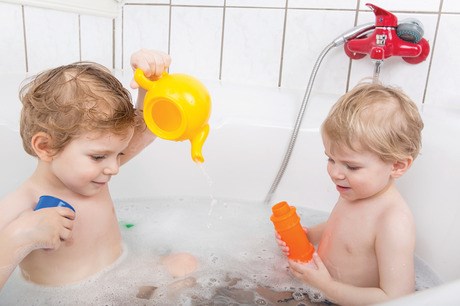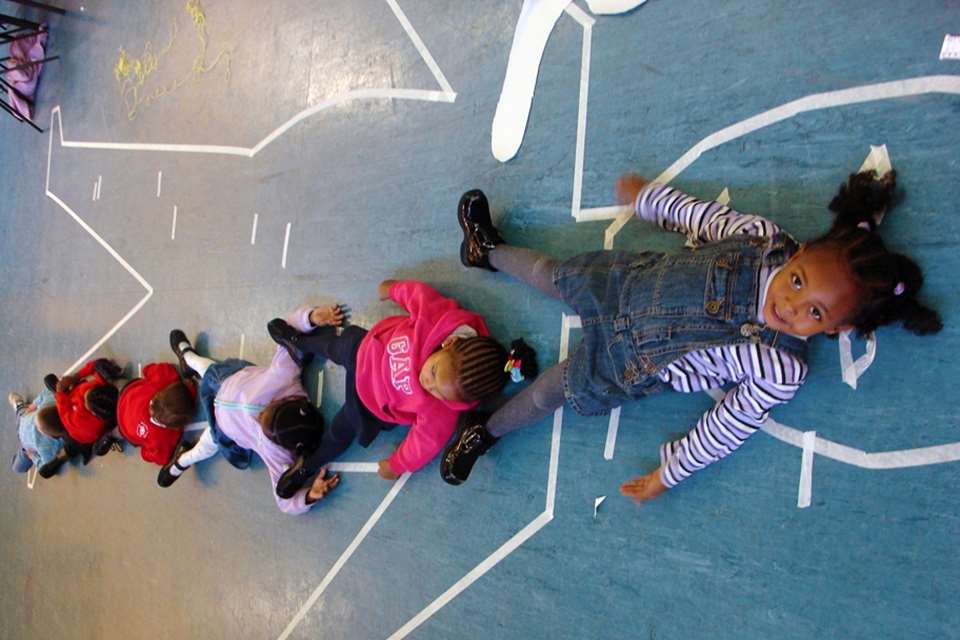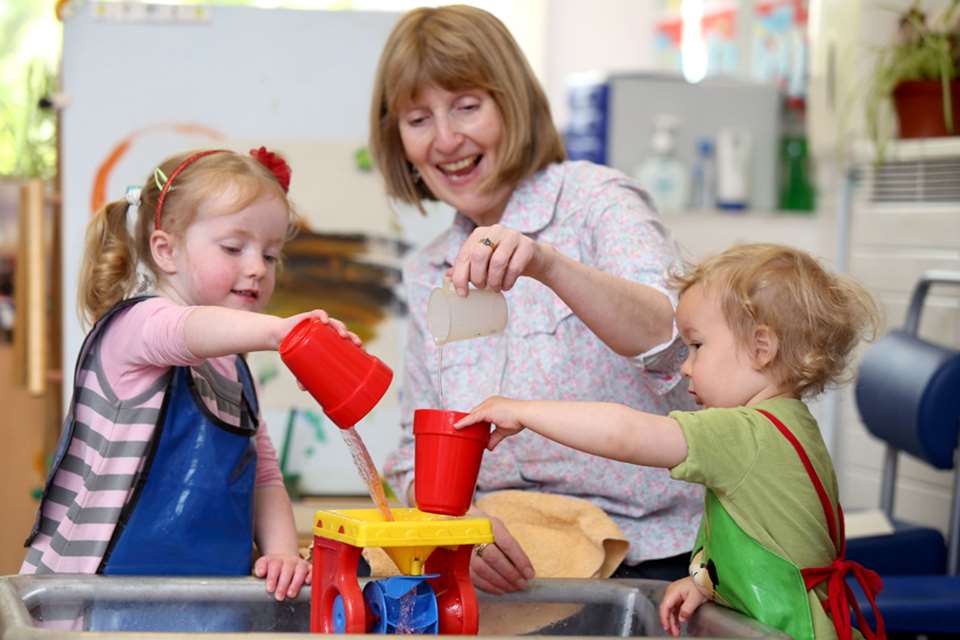Home Learning - A Parent’s guide to... mathematics
Kate Doyle
Monday, December 14, 2015
There are many fun ways to help a child’s mathematical learning at home. Kate Doyle provides some useful pointers

Counting is a key skill for young children to learn, and there is much that you can do at home to help your child grasp some of the mathematical ideas that they will use for the rest of their lives.
This guide suggests interesting ways to develop your child’s counting skills at home. It also aims to help you make links between your child’s play and their mathematical development.
COUNTING SKILLS
To be proficient at counting, there is a range of skills that your child must demonstrate:
- recite number names in sequence
- keep track of the objects counted
- know when to stop counting objects from a larger set
- recognise that the number associated with the last object touched is the total number of objects
- recognise small numbers of objects without counting them (subitising)
- recognise that if a group of objects that has already been counted is reorganised the total is still the same (conservation of number)
- match groups with the same number of objects
- match and compare the number of objects in two sets, recognising when the sets contain the same number of objects
- make a reasonable estimate of number without counting.
LEARNING TO COUNT
Learning to count takes time, and it is often hard for parents and carers to establish what their child really understands about the concept of number.
So, for example, when counting out objects, a child might:
miss out objects or recount them
often recite the number names in the correct sequence but might not be correlating the number names with the items that they are counting
very often count out a group of objects successfully, but when they asked how many there are, they give the wrong answer. This is because they have not yet learned the concept of a ‘total’ – or cardinality of the set (see glossary).
For example…
Here are some examples of young children’s attempts at counting while at nursery:
Child A is trying to count seven candles that he has placed onto his playdough cake. He recites numbers one to ten in the correct sequence, but touches only four out of the seven candles.
Child B attempts to count the candles. She touches each candle as she says the number name but she misses out one candle and only counts six.
Child C counts all seven of the candles and says the correct number name as he touches each candle. However, when asked how many candles there are, he starts to count again and again.
SUPPORTING MATHS AT HOME
Here are some suggestions of activities that you can do with your child at home to develop their early mathematical skills.
Counting together
Working collaboratively with your child, use numbers to solve problems and make everyday decisions. For example, you might ask them:
‘We need four tomatoes to make our sauce for dinner, and we have only two. How many more do we need to buy?’
‘You have two pillows in your room and your sister has two pillows in her room. How many pillowcases do I need to wash?’
‘There are four of us eating dinner. How many plates will we need? How many forks, knives and spoons will we need?’

Routines
Use routine times such as bedtime and bath time to develop mathematical ideas. For example:
Count the buttons on shirts or blouses as you fasten or unfasten them on your child’s clothes.
Count the number of Velcro straps on your child’s shoes as they take them off.
Compare the size and shape of different containers in the bath and the heaviness of containers when filled with water.
Use a timer when cleaning teeth.
Mealtimes
Encourage your child to help prepare meals. For example, let them:
help you weigh ingredients
find the best size of pot for cooking potatoes
talk about the temperature for baking a cake
measure the amount of water to add to soup
set the oven timer and count down to tea time
ensure that everyone has a knife, fork and spoon or cup and plate
pour glasses of water
fill plastic bowls/jugs with water.
Outdoors
Look out for ways to talk about mathematics when you are outdoors, such as going to the park or to the supermarket. For example:
Allow your child to handle items that won’t be easily damaged as you put them in the trolley.
Draw their attention to numbers and shapes in shops, on packaging, on houses, or on road signs and buses.
Ride through puddles on bikes or buggies and draw their attention to the length of the trail left behind.
Count trees, flowers or birds.
Provide your child with their own shopping list of items that they must find at the supermarket.
Encourage your child to engage in gardening activities such as planting seeds, as this will develop their understanding of time, and help them to measure the plants as they grow.
Rhymes and Stories
Read and recite rhymes and stories with mathematical content, because this will:
stimulate your child’s imagination and help them to be able to understand mathematical concepts
help them to understand difficult concepts such as time or comparing size or quantity
help them to become aware of counting, without really thinking about it, and increase their sense of rhythm
help them to become aware of number names and other mathematical ideas, such as sequence (order) and speed.
Firm favourites
Here are some popular number songs and rhymes that you can share with your child.
Use your fingers and other actions to add to the fun and develop your child’s understanding of number.
Five Currant Buns
Five currant buns in the baker’s shop,
Sound and round with a cherry on the top,
Along came (child’s name) with a penny one day,
Bought a currant bun and took it away.
Four Currant buns in the bakers shop...
Three.., Two.., One...
Five Little Ducks
Five little ducks went swimming one day,
Over the hills and far away,
Mama duck said ‘quack, quack, quack, quack’,
But only four little ducks came back.
Four little ducks went swimming one day...
Three.., Two.., One...
Five Little Monkeys
Five little monkeys swinging from a tree,
Teasing Mr Crocodile, ‘You can’t catch me’
Along came Mr Crocodile, as quiet as can be and
SNAP!
went the crocodile, and then there were:
Four little monkeys swinging from a tree...
Three.., Two.., One...
Five Little Speckled Frogs
Five little speckled frogs,
Sat on a speckled log eating some most delicious grubs yum, yum,
One jumped into the pool where it was nice and cool then there were
Four green speckled frogs glug, glug.
Four little speckled frogs...
Three.., Two.., One...
Ten Green Bottles
Ten green bottles, hanging on the wall,
Ten green bottles, hanging on the wall.
And if one green bottle, should accidentally fall.
There’ll be, nine green bottles, hanging on the wall.
Nine green bottles hanging on the wall...
Eight.., Seven.., Six.., Five.., Four.., Three.., Two.., One...
FINAL THOUGHTS
If you would like to know more about how you can support your child’s early mathematical development, or about the songs, rhymes and stories that you can share with them, talk to their key person or family worker.
Kate Doyle is assistant headteacher at Everton Nursery School and Family Centre in Liverpool, Merseyside, www.evertonnurseryschoolandfamilycentre.org
Glossary of Terms
Cardinal number The number of items in a set. For example, ‘There are five pencils in a pot so the cardinal number is 5.’
Conservation of number If a group of objects is rearranged, the total number is still the same.
Consecutive number Following in order. For example, 2,3, 4,5 are consecutive numbers.
Numeral A symbol used to representa number.
Ordinal numbers A term that describes a position within an ordered set. For example, first, second, third.
Subitising Recognising the size of a set from the pattern or structure without having to count the number of objects.







